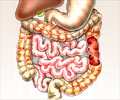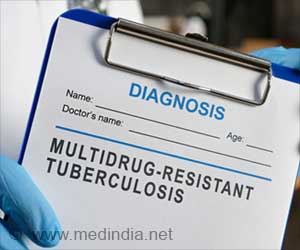Two ayurvedic drugs have been found useful in containing liver damage in tuberculosis patients undergoing conventional antituberculosis treatment.
Two ayurvedic drugs have been found useful in containing liver damage in tuberculosis patients undergoing conventional antituberculosis treatment.
About one third of the world's population has latent tuberculosis and roughly 9 million cases of active tuberculosis emerge annually resulting in 2-3million deaths, it has been estimated. Most new cases occur in the most populated nations like India and China.Combination chemotherapy containing Isoniazid (INH), Rifampicin (RMP), Pyrazinamide (PZA) with or without ethambutol for initial 2 months followed by a continuation phase of 4-6 months of Isoniazid and Rifampicin is the preferred regimen for successful treatment and for preventing acquired resistance.
Drug induced hepatotoxicity (liver damage) is a potentially serious adverse effect of antituberculosis (ATT) regimen. A higher risk of hepatotoxicity has been reported in Indian patients (up to 11.5%) than in their western counterpart (up to 4.3%). The only measure available for managing hepatotoxicity is stopping the offending agents, once there is an evidence of liver damage and reintroducing the same after normalization of liver enzymes. Search for non-toxic and highly effective new compounds for treating tuberculosis or an effective vaccine conferring sustained protective immunity have yet not seen the face of success.
A research article to be published on August 14, 2008 in the World Journal of Gastroenterology addresses this question. The research team led by Dr. Meghna Adhvaryu of Bapalal Vaidya Botanical research center, Departrment of Biosciences, Veer Narmad South Gujarat University Surat, India in joint effort with Dr. Bhasker Vakharia running a charitable mobile clinic in tribal belt of district surat, conducted a clinical trial of two Ayurvedic herbs in a modified form used as an adjuvant to conventional ATT to evaluate their ability to prevent hepatotoxicity.
Initially four potential candidate herbs were tested in a guinea pig model of ATT induced hepato-toxicity and marked hepato-protective ability was demonstrated. The research article was published on 21st June 2007 in the World Journal of Gastroenterology. Two herbs viz. Curcuma longa and Tinospora cordifolia were selected for further study due to their higher efficacy, very safe toxicological profile and synergistic action when used in combination.
The results of clinical trial proved the safety and efficacy of the formulation as an adjuvant to conventional ATT in preventing liver damage beyond doubt by limiting the incidence of hepatotoxicity (mild) to 0.06% as against 14% due to conventional treatment alone in the control group.
Advertisement
Looking at the scenario as described earlier, the results of this trial carries utmost significance and applicability at mass level tuberculosis control programs and might help curb the resurgence of TB in developed countries after advent of HIV and AIDS.
Advertisement
Source-Eurekalert
GPL











